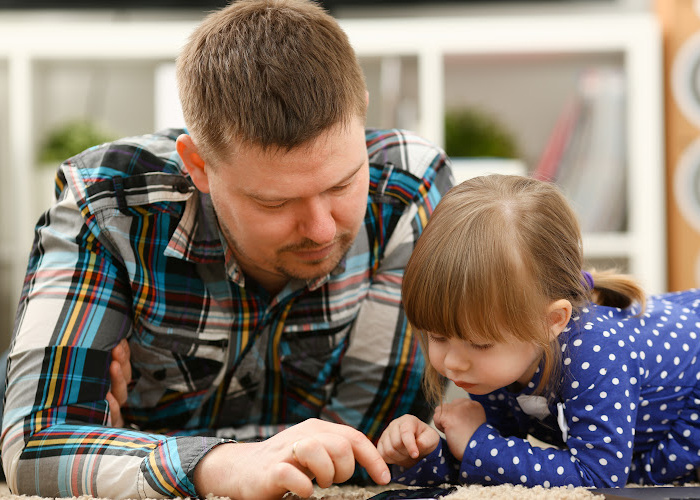It's crucial to know that students with autism and ADHD need special study strategies. Autism…

How to Help an Autistic Child with Social Skills
Stepping into the world of socialization can be a journey filled with intricacies, particularly for children on the autism spectrum.
As we explore how to help an autistic child with social skills, crucial factors come to light that pave the path for enhanced interactions and connections.
Guiding a child through this process necessitates a warm blend of patience, understanding, and strategic engagement to support their progress.
In the nuanced arena of social skills development in autism, each interaction becomes a vibrant tapestry of learning opportunities.
It’s not merely about teaching, but nurturing the kindling of a child’s innate curiosity and fostering a safe environment in which they can flourish.
Parents and caregivers seeking effective ways for supporting social development in autism are often the unsung heroes in this deeply transformative evolution.
As we delve into practical strategies and compassionate insights, our goal is not merely to inform but to empower.
The interplay of autism and social interaction skills is delicate, and yet, rich with potential. Children on the spectrum are diverse in their needs and abilities, and tapping into this diversity is key to unlocking their social capabilities.
Join us in this enlightening journey as we chart meaningful pathways to help autistic children embrace the world with confidence, one social skill at a time.

Understanding the Importance of Social Skills in Autism
Mastering social skills can be a significant hurdle in the lives of children with autism spectrum disorder. However, the right blend of autism social skills activities and tailored strategies can open new worlds for these young individuals.
Developing these crucial skills is not just about fostering their ability to communicate but also about improving their capacity to form meaningful relationships and feel a sense of community.
What Social Skills Entail for Autistic Children
For some autistic children, social interactions don’t come as naturally as they do for their neurotypical peers. This makes teaching social skills to autistic children a critical step in their development.
Through structured interventions like autism social skills training, we can provide clear guidance on how to read emotional cues, initiate conversations, and understand the intricate dance of social norms.
These interventions help in improving social skills in autistic children, giving them the tools to successfully navigate the complexities of human interaction.
Challenges and Impact on Quality of Life
Challenges in autistic child social interaction include difficulty in understanding non-verbal cues and adjusting behavior in various social contexts.
These challenges can have profound implications, affecting an individual’s ability to form friendships, partake in group learning, and participate in a fulfilling family life. y
Strategies to help autistic children with social skills, paired with ongoing support, are vital for enhancing their quality of life and enabling their full participation in society.
Role of Parents and Caregivers in Social Development
Developing social competencies in children with autism is a partnership between caregivers, therapists, and educators.
With sound strategies for developing social skills in autism, parents and caregivers can be the consistent reinforcement a child needs.
By engaging in autism social skills groups and promoting socialization in autism at home, caregivers empower their children with replicated, real-world scenarios to practice their growing skills.
Tips for enhancing social skills in autism often include customized visual aids and role-playing exercises, providing clear examples of social interactions to emulate.
The endless patience and support from loved ones play an irreplaceable role in these kids’ lives, helping shape their ability to thrive socially.
The united front of family and professionals ensures that every autistic child has the chance to learn, grow, and flourish within their communities.

Empowering Autistic Children Through Enhanced Social Skills
Developing effective social skills lays the cornerstone for meaningful interactions and is crucial for the well-being of autistic children.
By implementing targeted strategies and engaging in collaborative efforts, we can support social development in autism, ensuring these children have the best possible opportunities to connect with the world around them.
Strategies for Teaching Social Skills to Autistic Children
Teaching social skills to autistic children requires a multifaceted approach.
Key strategies include positive reinforcement for desirable interactions, modeling social behavior, and providing clear instructions.
Tailored autism social skills activities allow children to learn in a structured yet comfortable setting. Tools like the Westmead Feelings Program and PEERS® offer guidelines that are vital for promoting autism social skills training in a systematic way, aligning with the child’s strengths and interests.
Promoting Positive Social Interactions through Play
Play serves as a natural platform for social skills development in autism. It’s a time when parents can infuse fun with learning, teaching social skills for autistic kids without the pressures of a formal educational environment.
Whether it’s cooperative games or pretend play, the aim is to immerse the child in social situations that teach sharing, cooperation, and understanding of social rules.
Reinforcing these principles through play facilitates their practical application in real-life scenarios.
Utilizing Visual Supports and Social Stories
Visual supports for autism, such as charts, storyboards, and symbol cards, assist in breaking down complex social situations into manageable, learnable parts.
Social stories further complement this learning by painting a picture of social dynamics through relatable storytelling, allowing autistic children to navigate the social world with greater confidence.
Collaborating with Professionals for Social Skills Training
Autism social skills groups and training sessions are enriched by the expertise of professionals such as psychologists and speech therapists.
These collaborations allow for a tailored approach to supporting social development in autism, making way for specialized interventions that address the unique needs of the child.
As schools and therapy centers increasingly integrate these practices, we witness a positive shift in how social skills are cultivated within the autism community.

Conclusion
In the journey of supporting social development in autism, it’s evident that each step taken towards enhancing the social skills of an autistic child is a stride towards empowerment.
The effort to help an autistic child with social skills is indeed a comprehensive task, underlined by the dedication to understand the individual’s unique needs and positively reinforce the behaviors that foster connection and growth.
Through unwavering commitment and the implementation of effective strategies to help an autistic child with social skills, parents, caregivers, and professionals collectively nurture a child’s ability to flourish socially.

FAQ
What skills fall under the category of social skills for autistic children?
Social skills for autistic children include a broad range of competencies such as play skills, conversation skills, understanding and expressing emotions, problem-solving with others, and the aptitude for initiating and maintaining social interactions.
Why are social skills important for children with autism?
Developing social skills is crucial for children with autism as it directly impacts their ability to form and maintain relationships, understand and participate in social situations, learn in group settings, and function effectively in day-to-day life, leading to a better quality of life.
What challenges do autistic children face in developing social skills?
Autistic children may struggle with interpreting nonverbal cues, adjusting behavior to different social contexts, initiating and maintaining conversations, and understanding others’ perspectives, making it challenging for them to naturally acquire social skills without targeted support and instruction.
What role do parents and caregivers play in teaching social skills to autistic children?
Parents and caregivers are vital in teaching social skills to autistic children. They provide consistent reinforcement, model appropriate behaviors, create opportunities for practice, and coordinate with professionals to ensure their child can transfer learned skills to various social settings.
What are some effective strategies for teaching social skills to autistic children?
Effective strategies include reinforcing positive behaviors, modeling social interactions, using visual aids, engaging in role-play activities, participating in social skills groups, and incorporating social stories to provide clear examples of social behavior.
How can play activities be used to enhance social skills?
Play activities offer a natural and fun way to teach social skills, such as turn-taking, rule adherence, and emotional regulation. Games and structured play can simulate social scenarios, allowing children to practice and reinforce these vital skills.
What are visual supports and how do they help autistic children with social skills?
Visual supports such as pictures, symbols, checklists, and social stories assist autistic children by providing a concrete, visual representation of the steps involved in social interactions, which can be more easily understood and followed.
Why is it important to collaborate with professionals for social skills training?
Collaborating with professionals like psychologists, speech therapists, and special educators can offer individualized and specialized approaches to social skills training, ensuring autistic children receive the support they need based on their unique challenges and strengths.
Can social skills training be tailored to an autistic child’s individual needs?
Yes, social skills training can and should be tailored to meet an autistic child’s specific needs, strengths, and interests. Personalized programs help ensure more effective learning and a better chance of success in applying these skills to real-life situations.
What types of social skills activities and groups exist for autistic children?
There are various types of social skills activities and groups available, such as peer-mediated interventions, playgroups specifically for children with autism, and structured programs like PEERS® that teach social skills in a group setting.
How can social stories be used to improve socialization in autism?
Social stories can be customized narratives that depict social situations and appropriate responses. They help children with autism understand the nuances of social interactions and anticipate what might happen, which in turn enhances their ability to socialize effectively.
What are some tips for enhancing social skills in children with autism?
To enhance social skills in children with autism, using a child’s interests to facilitate engagement, providing clear and consistent feedback, encouraging practice in varied settings, and maintaining a patient, supportive approach are key strategies to consider.



This Post Has 0 Comments